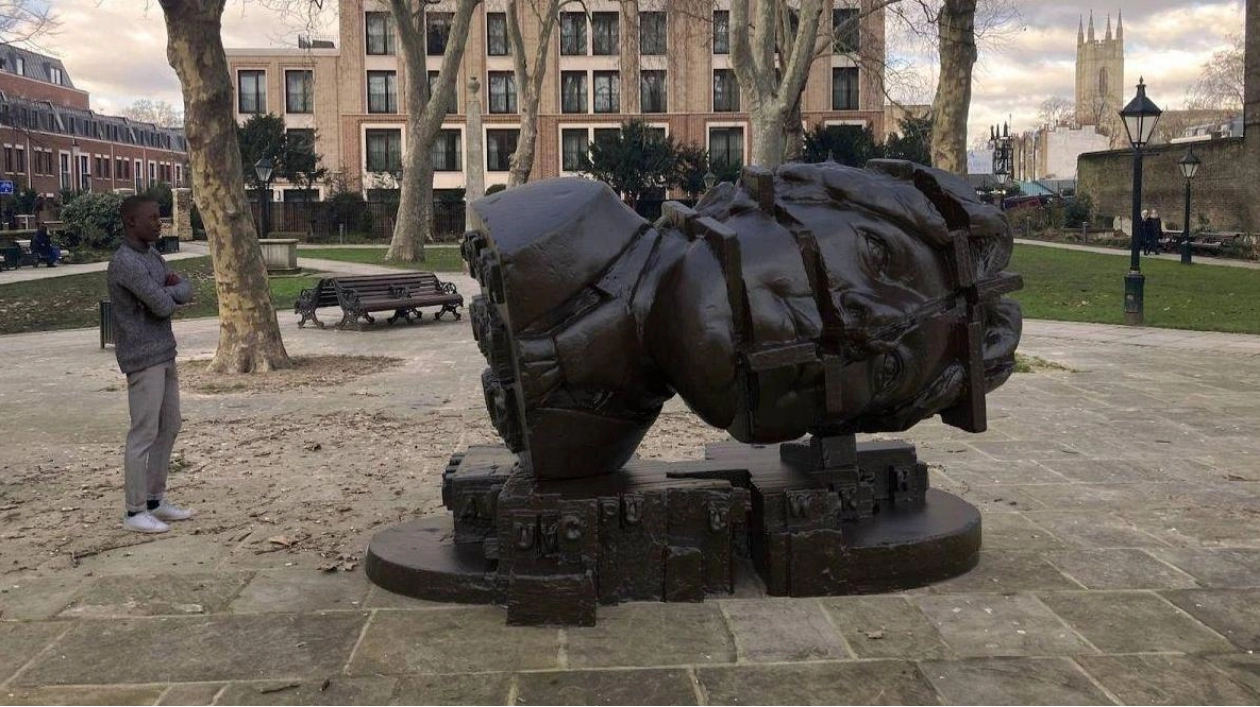“There is only one thing in life worse than being talked about, and that is not being talked about.” These famous words from Oscar Wilde would surely have amused him, given the context of the recent unveiling of a new black bronze sculpture in his honor. The sculpture, designed by the late Scottish pop artist Sir Eduardo Paolozzi, depicts Wilde as a segmented head and is set to be erected in a public garden in Chelsea, south-west London, close to Wilde’s former residence.
However, the conceptual artwork has not been met with enthusiasm. “I’m all for any sort of innovations in modern art. But this does seem to me to be unacceptable,” commented Merlin Holland, Wilde expert and the author’s only grandchild. “It looks absolutely hideous,” he told The Observer. Holland continued: “It seems to say: ‘Here is a monument to a man whom society decapitated’.” This sentiment is not entirely unfounded, as Wilde was imprisoned after being convicted of gross indecency for homosexual acts and died in poverty in 1900 in Paris, aged 46.
Paolozzi submitted a design of the model to a committee in 1995, advocating for a conceptual rather than representational sculpture of Wilde. The sculpture was rejected at the time, and a different model was selected. The Paolozzi Foundation stated: “The foundation takes the view that everyone is entitled to their opinion, including Oscar Wilde's grandson. We also note that the Oscar Wilde Society is fully supportive.”
Wilde’s memory is honored in various monuments, including his tomb in the Père Lachaise cemetery in Paris, which is visited by thousands annually. Designed by sculptor Jacob Epstein, with an accompanying plinth by Charles Holden, it features an epitaph from “The Ballad of Reading Gaol.” A tradition of visitors applying lipstick to their lips and kissing the tomb has led to permanent damage, prompting the installation of a glass barrier in 2014 to protect the monument.
Stephen Fry, who portrayed Oscar Wilde in the 1997 biographical drama ‘Wilde,’ reflected on this practice during a 2016 speech: “Here's this man who believed when he died that his name would be toxic for generations to come. For hundreds of years his work wouldn't be read. He would stand for nothing but perversion. Utter disgust of a society that couldn't bear people like him.” Fry continued, “His tomb in Père Lachaise Cemetery, in Paris. It had to be restored because the polished stone of its surface had corroded through kissing. Thousands and thousands. (...) Wouldn't it be allowed once to just wake him up for five minutes just to tell him that, then he can go back to sleep again?”






